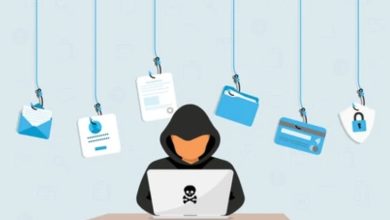Kaspersky Thwarts 22 Million Local Threats in Malaysia Throughout 2023

The global cybersecurity and digital privacy company, Kaspersky released its latest data with a specific focus on local threats for Malaysia over the period of three years. The report shows a continuous but minimal drop from 2021 to 2023.
Worms and file viruses account for most local threats. The data gathered by Kaspersky Security Network (KSN) shows how frequently users are attacked by malware spread through removable USB drives, and other offline methods.
Protection against local threats not only requires an antivirus solution capable of treating infected objects, but also a firewall, anti-rootkit functionality and control over removeable devices.
Overall, last year, Kaspersky solutions blocked a total of 22,037,248 local threats targeting Malaysian users. It is a 0.43% drop as compared to 2022 with 22,133,174 detections.
|
Year |
Local Threats |
|
2021 |
35,873,395 |
|
2022 |
22,133,174 |
|
2023 |
22,037,248 |
Local Threats data collected through Kaspersky Security Network (KSN)
Comparatively, the local threats number was higher in 2021, similarly reported by INTERPOL that year that cybercrime was on upward trend with highly organized cybercriminals sharing resources and expertise to their advantage.
“We could not emphasise enough to public and corporates that practicing cyber hygiene is an essential step to keep the local threats at bay. Offline method of attacks usually requires human’s action in order to be successful. As our previous research showed, employees breaching security protocols are now as dangerous as external hacking against a company. I encourage organisations to look closely into how they can strengthen the human factor of their security posture,” says Yeo Siang Tiong, General Manager for Southeast Asia at Kaspersky.
CyberSecurity Malaysia Mid-Year Report on Threat Landscape 2023 highlighted that law enforcement interventions would offer temporary respites but the top priority should be focusing on strengthening cybersecurity infrastructures, continuous monitoring, trainings and best practices be put in place. In the same report also shows that manufacturing sectors were the hardest hit with ransomware, followed by education and others.
“It’s also important to remember that, in recent years, cybercriminals have already saw the value of targeted attacks over mass attempts. We should not be complacent just because we see this slight drop in local threats. Vigilance remains necessary,” he adds.
Kaspersky experts’ advice on cyber hygiene to safeguard against local threats:
-
Keeping passwords safe and secure
-
Using multi-factor authentication
-
Backing up data regularly
-
Ensuring privacy
-
Keeping apps, software and firmware up to date
-
Security routers
-
Avoiding social engineering attacks
-
Using network firewalls
-
Encrypting devices
-
Wiping hard drives before disposing or sell a device
-
Ensuring high-quality endpoint protection




